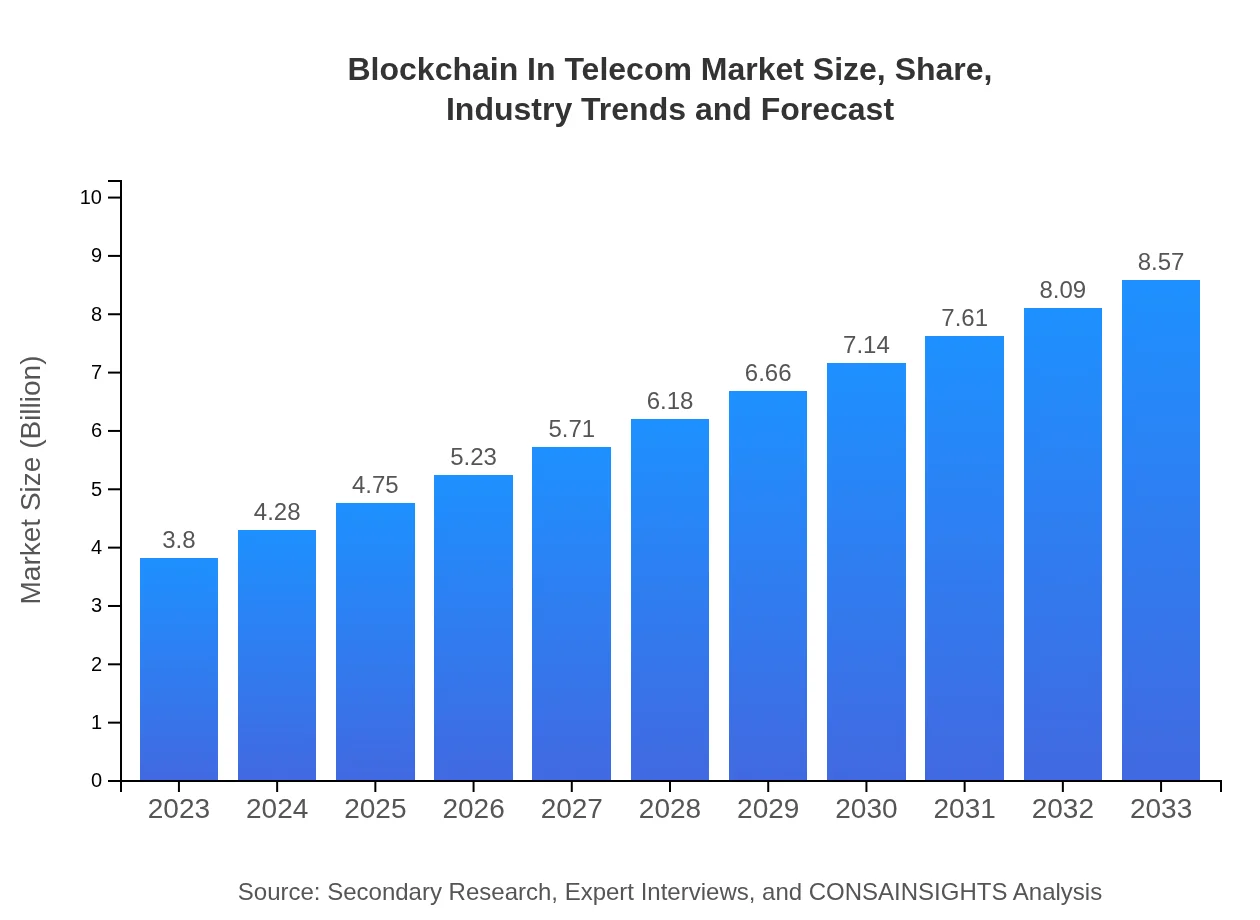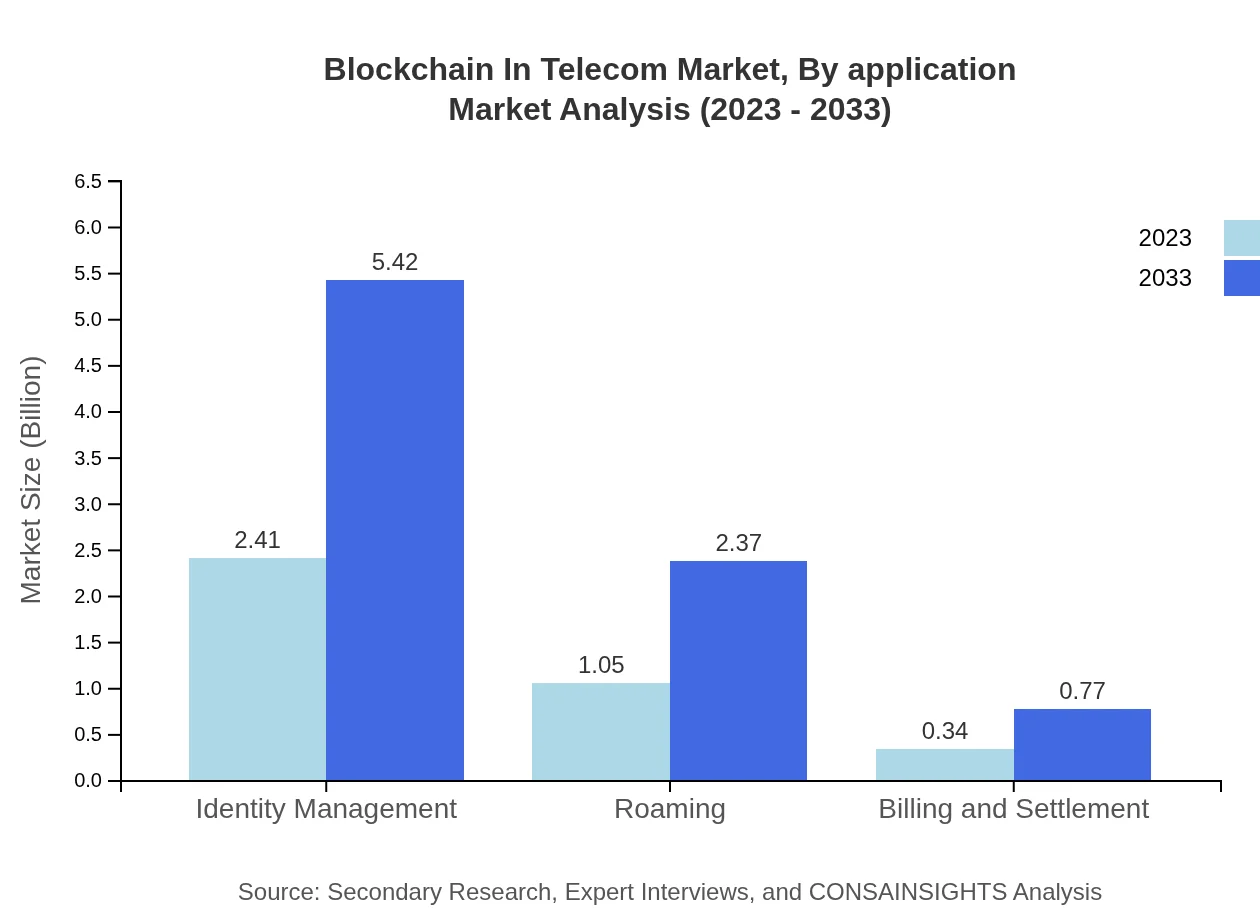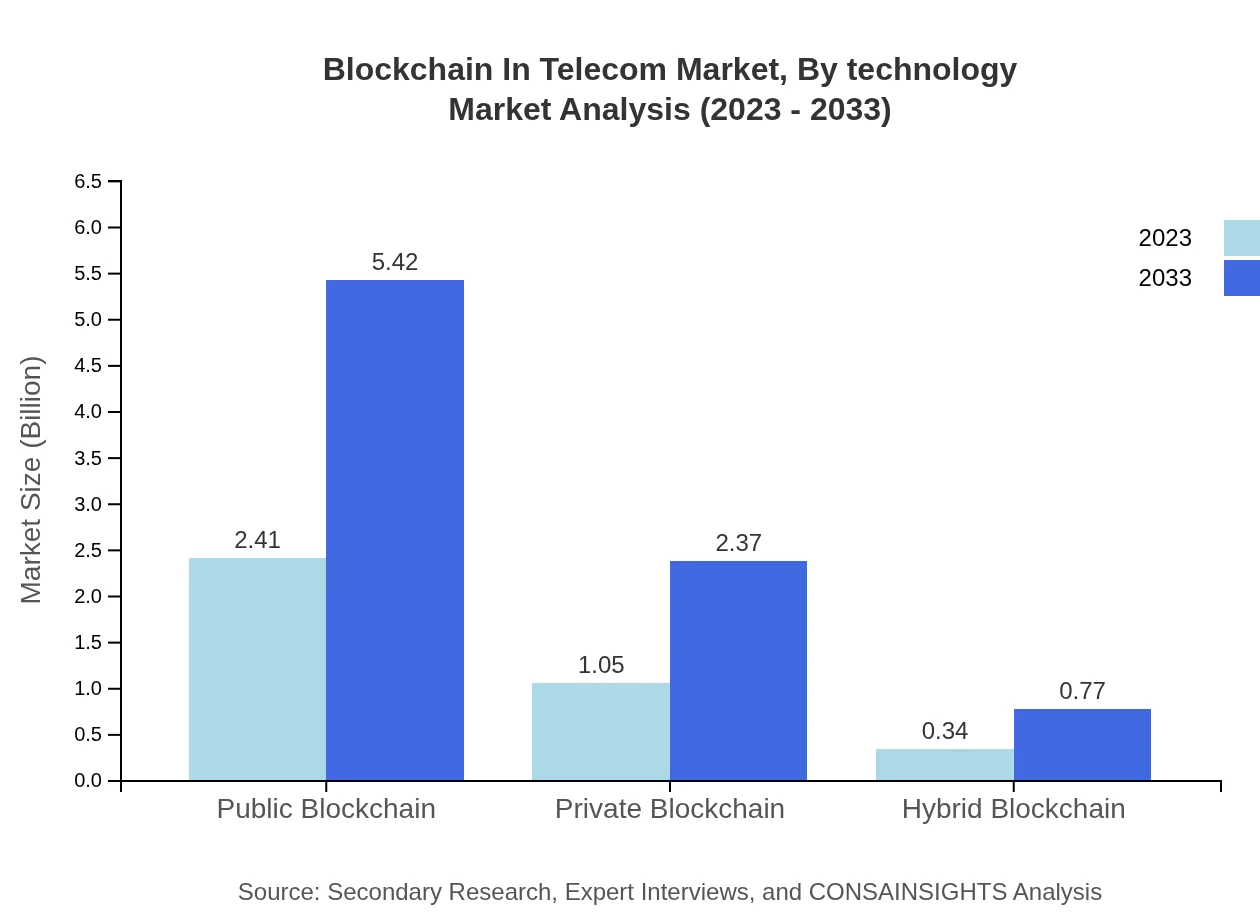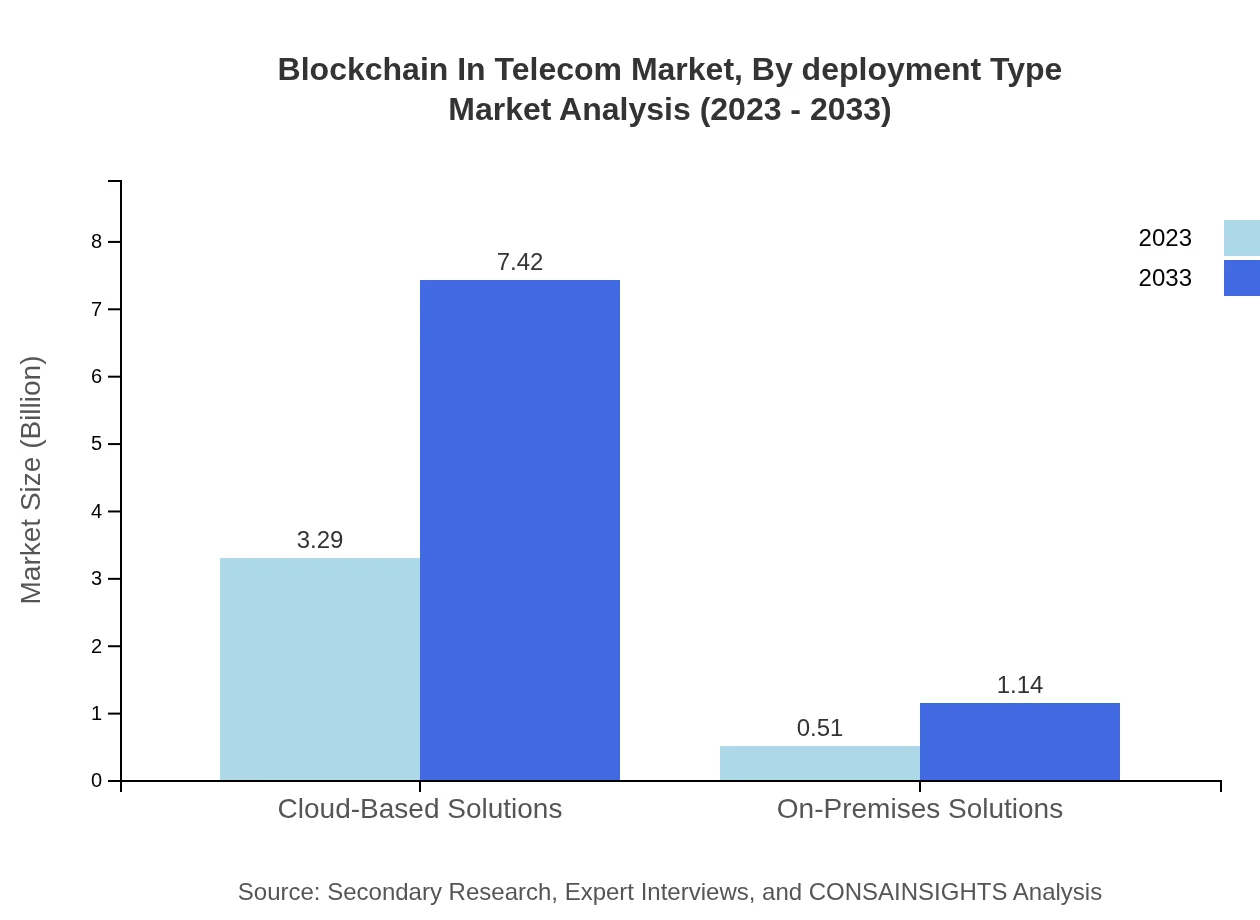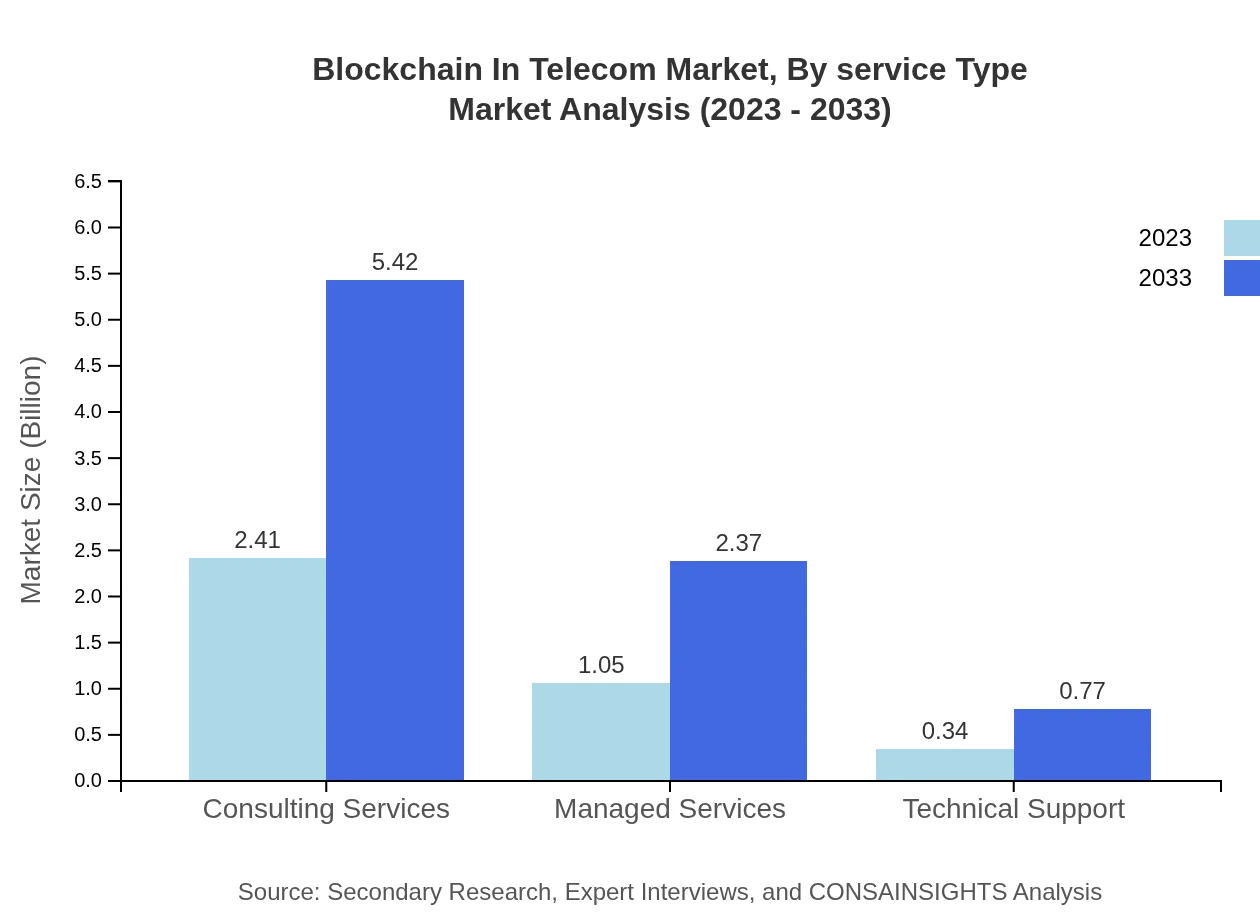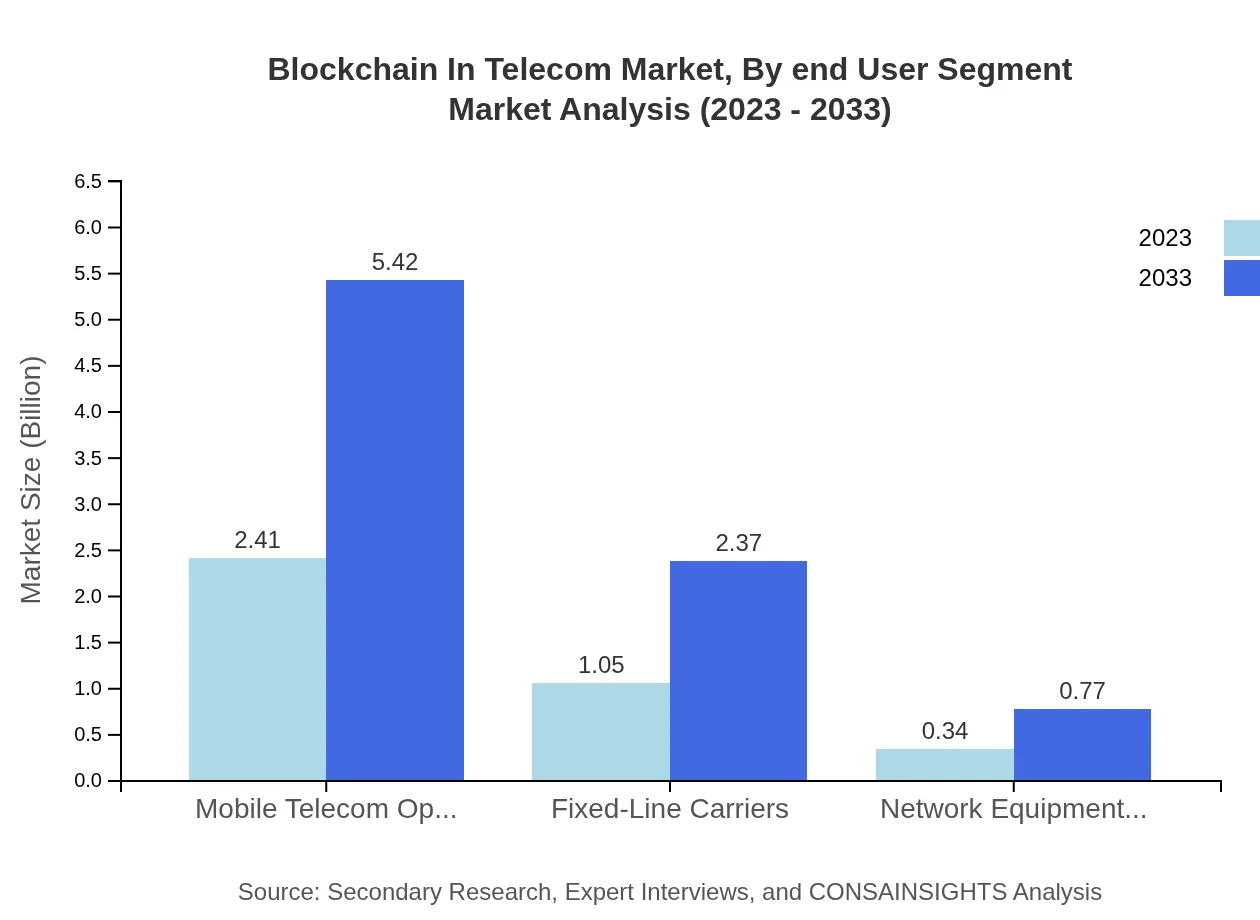Blockchain In Telecom Market Report
Published Date: 31 January 2026 | Report Code: blockchain-in-telecom
Blockchain In Telecom Market Size, Share, Industry Trends and Forecast to 2033
This comprehensive report explores the Blockchain In Telecom market from 2023 to 2033, providing insights on market size, growth trends, industry segmentation, and regional analysis, alongside technology and product assessments crucial for stakeholders in the telecom sector.
| Metric | Value |
|---|---|
| Study Period | 2023 - 2033 |
| 2023 Market Size | $3.80 Billion |
| CAGR (2023-2033) | 8.2% |
| 2033 Market Size | $8.57 Billion |
| Top Companies | IBM, Microsoft, Ripple, Accenture |
| Last Modified Date | 31 January 2026 |
Blockchain In Telecom Market Overview
Customize Blockchain In Telecom Market Report market research report
- ✔ Get in-depth analysis of Blockchain In Telecom market size, growth, and forecasts.
- ✔ Understand Blockchain In Telecom's regional dynamics and industry-specific trends.
- ✔ Identify potential applications, end-user demand, and growth segments in Blockchain In Telecom
What is the Market Size & CAGR of Blockchain In Telecom market in 2023?
Blockchain In Telecom Industry Analysis
Blockchain In Telecom Market Segmentation and Scope
Tell us your focus area and get a customized research report.
Blockchain In Telecom Market Analysis Report by Region
Europe Blockchain In Telecom Market Report:
Europe's Blockchain In Telecom market is projected to escalate from 0.94 billion in 2023 to 2.11 billion in 2033. Major telecom players in countries like Germany and the UK are increasingly adopting blockchain for its applications in data security and regulatory compliance.Asia Pacific Blockchain In Telecom Market Report:
In the Asia Pacific region, the Blockchain In Telecom market size is expected to experience substantial growth from 0.77 billion in 2023 to 1.74 billion by 2033. Countries such as China and India are leading the charge in blockchain adoption, with enhancements in digital payment systems and smart contracts being pioneered within the telecom industry.North America Blockchain In Telecom Market Report:
North America leads in the Blockchain In Telecom market, with a considerable market size increase from 1.39 billion in 2023 to an estimated 3.13 billion in 2033. The United States is primarily driving this growth, fueled by massive investments in blockchain startups aimed at leveraging technology for enhanced customer experiences.South America Blockchain In Telecom Market Report:
The South American market, although smaller, is also witnessing a rise in blockchain technology acceptance, with the market growing from 0.26 billion in 2023 to 0.58 billion in 2033. Brazil and Argentina are at the forefront of exploring blockchain as a means to streamline operations in mobile payments and improve transparency in telecom services.Middle East & Africa Blockchain In Telecom Market Report:
The Middle East and Africa will also see growth in the Blockchain In Telecom market, increasing from 0.44 billion in 2023 to approximately 1.00 billion by 2033. The region is recognizing the importance of digital transformation, leading to higher investments in blockchain technology within telecom sectors.Tell us your focus area and get a customized research report.
Blockchain In Telecom Market Analysis By Application
Applications in the Blockchain In Telecom market include identity management, roaming, billing and settlement, and consulting services. Identity management alone constitutes a substantial portion of the market, with its size projected to rise from 2.41 billion in 2023 to 5.42 billion in 2033. Roaming applications also see considerable growth, moving from 1.05 billion in 2023 to 2.37 billion in 2033, while billing insights show similar upward trends.
Blockchain In Telecom Market Analysis By Technology
The leading technologies observed in the Blockchain In Telecom market include public, private, and hybrid blockchain frameworks. The public blockchain market size is expected to escalate from 2.41 billion in 2023 to 5.42 billion in 2033, showcasing the openness and transparency that this technology brings to telecom applications.
Blockchain In Telecom Market Analysis By Deployment Type
The deployment types in the Blockchain In Telecom space are categorized into cloud-based and on-premises solutions. The cloud-based segment is the frontrunner, anticipated to grow from 3.29 billion in 2023 to 7.42 billion in 2033, presenting an attractive option for telecom operators looking to leverage scalability and accessibility.
Blockchain In Telecom Market Analysis By Service Type
Service types in this market include managed services, technical support, and consulting services, with significant growth expected in both consulting services and managed services, further illustrating the trend of outsourcing IT needs to specialized providers. Consulting services will grow from 2.41 billion in 2023 to 5.42 billion in 2033.
Blockchain In Telecom Market Analysis By End User Segment
The end-user segments primarily include mobile telecom operators, fixed-line carriers, and network equipment manufacturers. Mobile telecom operators are the dominant players, expected to hold substantial market shares with growth transitioning from 2.41 billion in 2023 to 5.42 billion in 2033.
Blockchain In Telecom Market Trends and Future Forecast
Tell us your focus area and get a customized research report.
Global Market Leaders and Top Companies in Blockchain In Telecom Industry
IBM:
IBM leads in the blockchain space, offering various telecom solutions aimed at enhancing operational efficiency and reducing fraud across network systems.Microsoft:
Microsoft provides a comprehensive blockchain framework through Azure, catering to telecom companies by optimizing their operational processes and integrating data security.Ripple:
Specialized in payment systems, Ripple's blockchain technology supports telecom operators in cross-border transactions and remittances, making it crucial as the industry expands.Accenture:
Accenture helps telecom firms navigate blockchain innovation, delivering consulting services that strategize integration into existing operational frameworks.We're grateful to work with incredible clients.









FAQs
What is the market size of blockchain In Telecom?
The blockchain-in-telecom market is projected to reach approximately $3.8 billion by 2033, with a compound annual growth rate (CAGR) of 8.2% from 2023 to 2033. This significant growth reflects the increasing adoption and innovation in blockchain technologies within the telecom sector.
What are the key market players or companies in this blockchain In Telecom industry?
Key players in the blockchain-in-telecom industry include major telecommunications operators, technology firms specializing in blockchain applications, and service providers offering consulting and managed services tailored to blockchain integration. These companies drive innovation and standards in this emerging market.
What are the primary factors driving the growth in the blockchain In Telecom industry?
Key factors driving growth include the need for enhanced security, transparency in transactions, cost reduction in operational processes, and the demand for efficient identity management solutions, which blockchain effectively addresses in the telecom sector, leading to increased investments and adoption.
Which region is the fastest Growing in the blockchain In Telecom?
The fastest-growing region in the blockchain-in-telecom market is North America, projected to grow from $1.39 billion in 2023 to $3.13 billion by 2033. Other regions like Europe and Asia Pacific also demonstrate significant growth potential due to widespread telecom infrastructures.
Does ConsaInsights provide customized market report data for the blockchain In Telecom industry?
Yes, ConsaInsights offers customized market report data tailored to specific needs within the blockchain-in-telecom industry, ensuring businesses receive insights that align with their strategic objectives and market demands.
What deliverables can I expect from this blockchain In Telecom market research project?
Expect deliverables such as comprehensive market analysis, growth forecasts, competitive landscape assessments, and detailed insights into market trends and segments, along with actionable recommendations tailored to your business strategies.
What are the market trends of blockchain In Telecom?
Emerging trends in the blockchain-in-telecom market include increased adoption of public and private blockchains for identity management, growth in cloud-based solutions, and advancements in managed and consulting services, driving operational efficiencies in telecom operations.

